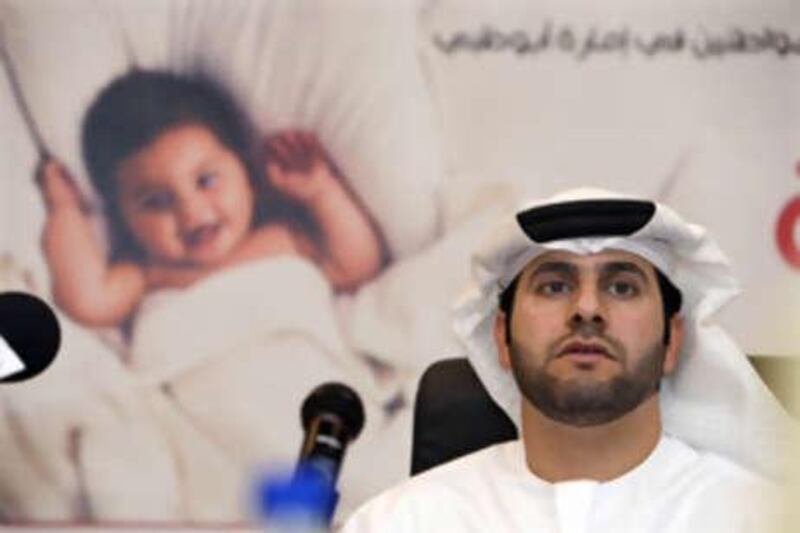ABU DHABI // Some private clinics are turning away Emiratis entitled to free health care anywhere in the emirate, government officials have acknowledged. Under a scheme launched by the Health Authority of Abu Dhabi (HAAD) in June, all Emiratis were eligible to apply for a Thiqa card, which would allow them free medical treatment at any public or private clinic. But some private clinics, not adequately prepared for the new system, have turned away card holders. Health care providers must electronically submit Thiqa claims. Those clinics that are not ready for the change, and have not trained staff to use the new set-up, could lose clients. Also, claims that are improperly submitted will not be accepted.
"HAAD has become aware that one or two private facilities have failed to prepare for this adequately," said Dr Klaus Boecker, the director of corporate performance operations. "If these few facilities really turn away Thiqa patients because they are not capable of submitting electronic invoices for the services to these patients, they only have themselves to blame for their loss in market share. "They should not be punishing their customers for the failures of their in-house hospital administrations. And, should they turn away emergency patients they will, of course, face the regulatory consequences."
Starting from Sept 1, all claims made to insurance companies must be submitted electronically. HAAD announced the change in January and has since produced extensive information on its website, held workshops for health professionals and published various comprehensive guidelines. The aim is to speed up the claims process and to unify the systems used across the emirate. At the official launch of the scheme, HAAD said all Emiratis would be required to take a Periodic Medical Examination - Weqaya - which would test them for high blood pressure, diabetes, high cholesterol and other diseases.
However, not everyone has been asked to take the compulsory test. Mona Salem, 28, said: "I got my Thiqa card without any screening because they [a medical centre] said it was optional." Children under the age of 18 are exempt. Mrs Salem, who works at Abu Dhabi Municipality, said some clinics had refused her Thiqa card. "Some medical centres are not accepting Thiqa," she said. "They say it is new and they are doubtful of using it."
Dr Boecker said: "Not everyone has received their Thiqa card yet, but they will in due course. "Not everyone has been screened so far simply for logistical reasons, but the SEHA [Abu Dhabi Health Services Company] facilities are doing a good job managing the tremendous demand." HAAD acknowledged it expected a few glitches in the implementation of the new programme. Mr Zaid al Siksek, the chief executive of HAAD, said: "Thiqa is probably one of the most comprehensive insurance programmes in the world. Many private hospitals are really gearing up for the changes and have done a lot to attract new clientele.
"With a such a big system being introduced, there are bound to be a few misunderstandings. This would happen anywhere on Earth. There is no way you can introduce something as big as this and something as important as this without there being some communication misunderstandings about the details." The Thiqa programme was a success, with more than 300,000 registered, Mr Siksek said. Of those, an estimated 140,000 from the emirate of Abu Dhabi are eligible for screening.
There is no claim limit with the Thiqa cards and users can use any public or private health care provider they choose. It is up to the health care provider to claim expenses from the Government. Daman, the Government's national health insurance provider, is responsible for Thiqa, although other companies might work with Daman in the future. Some clinics said they have noticed an increase in the number of clients since Thiqa was introduced.
Hissa Abdulla, 40, said: "I feel like the card has encouraged people to visit the doctors more. "I was at a clinic recently and it was more packed than usual, the wait was really long. "Overall, I think the Thiqa card is an excellent thing, but that maybe it should be revised or refined in terms of coverage and benefits so that there is a clear and uniform policy in clinics, hospitals and even pharmacies so that the card bearer can be clear on what his or her benefits are."
HAAD wants all Emiratis in Abu Dhabi to be registered by the end of 2008. @Email:munderwood@thenational.ae * Additional reporting by Hessa al Romaithi and Fatima al Shamsi





